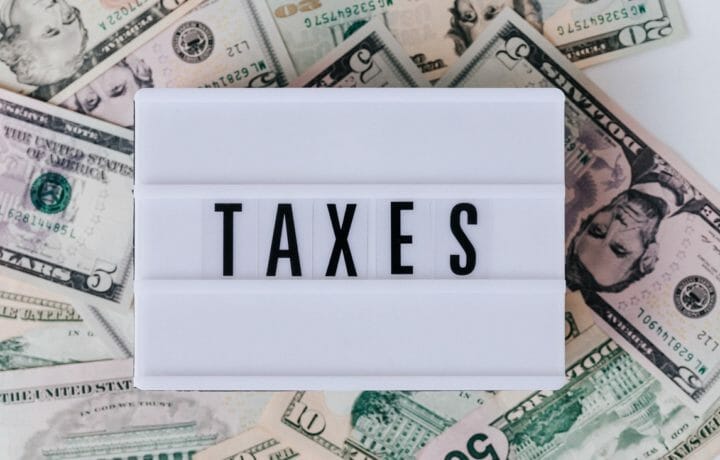If you waited to file your taxes until last week, you’re not alone. According to a survey conducted by IPX 1031, upwards of one-third of Americans put off filing their taxes. Of those who waited, the survey found that some 40% said it was simply too time-consuming, 22% said it was just too stressful, while an additional 22% opted to wait and make sure they were filing it correctly, and 10% said they weren’t rushing as they expected no refund. And about 6% had waited as they were even worried they’d owe money to the Internal Revenue Service (IRS).
Whatever the reasons, most experts agree it is never a good idea to put off filing your taxes. The IRS can impose penalties and interest for those who owe money, and if you’re expecting a refund, that won’t ever come until you file. It is too late to do much about 2020’s federal income taxes, but it is never too early to think about next year. This is especially true for those who go the 1099 freelance route. For those with a security clearance, steering clear of tax woes is always recommended.
“Being a 1099 has no impact versus a W2 with respect to someone’s clearance,” said attorney Mark S. Zaid, who specializes in issues related to security clearance. However, Zaid told ClearanceJobs that problems with federal taxes can be a problem in other ways, and he cited Guideline F: Financial Considerations.
“Tax troubles can absolutely have an adverse impact,” warned Zaid. “In fact, these are some of the most common clearance problems.”
For those reasons, if you’re making the transition to freelance work, there are some factors to consider.
Form 1099 and Tax-reporting Requirements
Freelancers, including independent contractors that do work on a “project basis,” receive a 1099. There can be some confusion because there are actually multiple 1099 forms – including 1099-R for distribution of pensions or 1099-S for the sales proceeds of a real estate transaction.
For freelancers, the correct version is Form 1099-NEC, Nonemployment Compensation. You should receive this for any job that paid you $600 or more. Where confusion lies is that if you took on an assignment that paid less, the payee may not actually issue the form, but you’re still required to claim the money as income. If you earned it, the federal government wants a piece of it.
Deducting Business Expenses
One of the biggest benefits/perks of being your own boss is that there is a lot more leniency on what qualifies as a “business expense.” This can include a home office deduction, which most salaried/full-time employees cannot claim in their work from home status, as well as being able to write off travel expenses. According to the IRS, defines an expense write off, saying “a necessary expense is one that is helpful and appropriate for your trade or business.”
That doesn’t mean that a trip to Cancun for the weekend can be written off, but the costs of travel to a conference or trade show, as well as just using your car for business can be deducted. You can also depreciate most business equipment that has a useful life of more than one year.
Additionally, as you’re responsible for your own health care and retirement, those can also be deducted. This includes any contributions you make to a qualified self-employment retirement plan.
Self-Employment Taxes
One of the downsides of being self-employed is that you’re responsible for the Federal Insurance Contributions Act (FICA) withholdings that go toward the Social Security and Medicare programs. As a self-employed taxpayer, you will pay both the employer and employee portion and this is the Self-Employed Contributions Act (SECA) taxes
However, it is paid on net earnings, while the law also permits you to deduct half of the self-employment tax as a business expense. So it really evens out.
Pay Your Quarterly Taxes
As you don’t have an employer withholding your taxes, you have the added burden to pay estimated taxes four times a year at the end of each fiscal quarter. The due dates are April 15, June 15, September 15 and January 15. However, if you expect to owe less than $1,000 in taxes for the year you are usually exempt from making quarterly payments.
Additionally, the IRS warns that if you don’t pay enough tax through withholding and estimated tax payments, you may be charged a penalty. You also may also be charged a penalty if your estimated tax payments are late, even if you are due a refund when you file your tax return.
Penalties for Late or Non-Payment
As noted above, the IRS can penalize you if you don’t file quarterly taxes, and that penalty for non-payment may be as much as 5% for every month the payment is late, but it cannot exceed 25% of the total payment due.
If you are unable to pay the taxes due, the IRS will typically allow you to set up a payment plan. The payment period is 120 days or less and the total amount owed is less than $100,000 in combined tax, penalties and interest; while the IRS will generally approve a long-term payment plan whereby your debt is made in monthly payments. This is generally approved if the amount owed is less than $50,000 in combined tax, penalties and interest.



